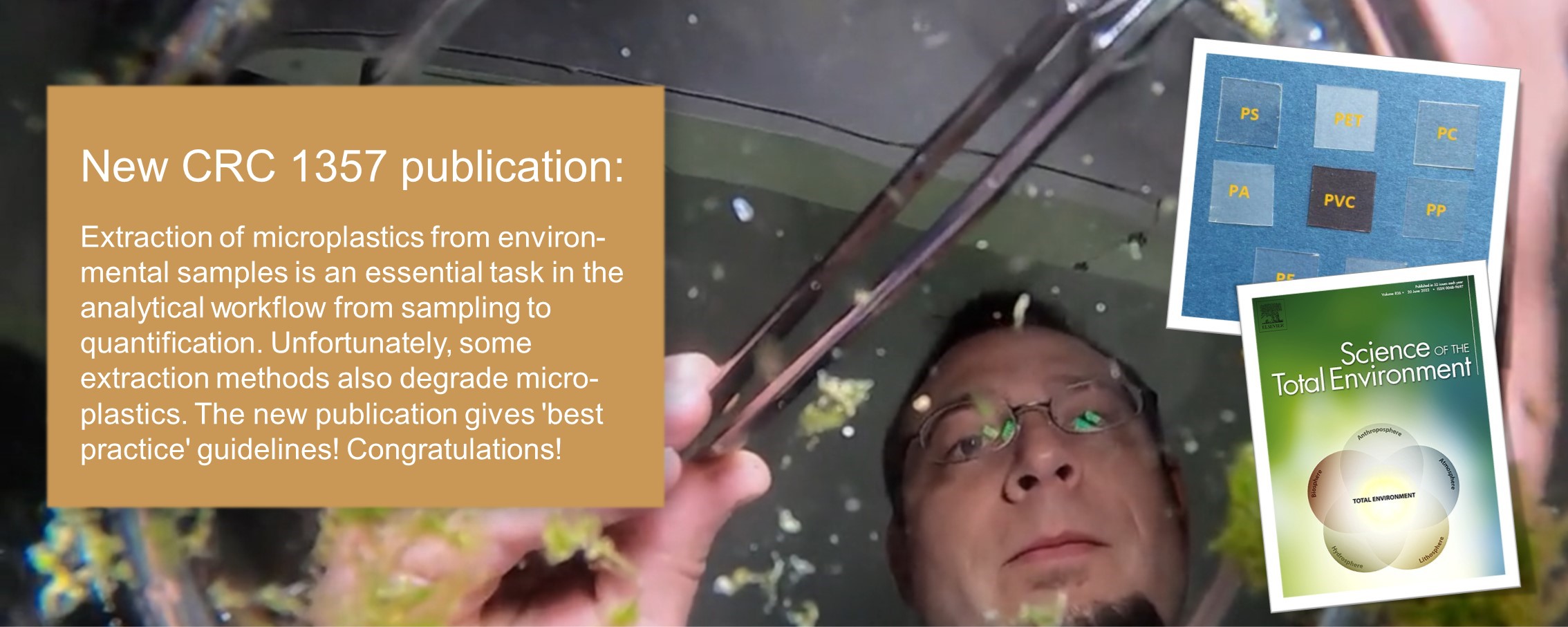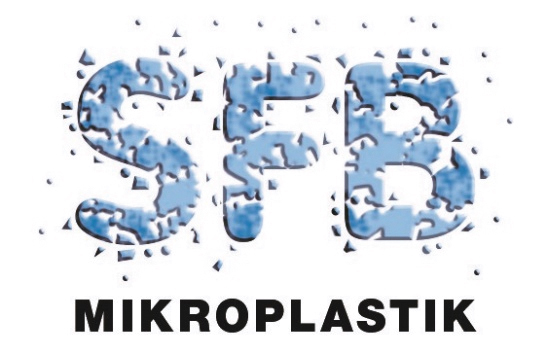News
New CRC 1357 publication: Schrank (2022) - Microplastic sample purification methods - Assessing detrimental effects of purification procedures on specific plastic types
10.08.2022

Congratulations to the B06, C02, C05 teams & colleagues: Isabella Schrank; Julia N. Möller; Hannes K. Imhof; Oliver Hauenstein; Franziska Zielke; Seema Agarwal; Martin G. J. Löder; Andreas Greiner; Christian Laforsch to their new research article in the journal Science of the Total Environment:
"Microplastic sample purification methods - Assessing detrimental effects of purification procedures on specific plastic types"
DOI: https://doi.org/10.1016/j.scitotenv.2022.154824
Abstract: In search of effective, fast, and cheap methods to purify environmental samples for microplastic analysis, scientific literature provides various purification protocols. However, while most of these protocols effectively purify the samples, some may also degrade the targeted polymers. This study was conducted to systematically compare the effects of purification protocols based on acidic, alkaline, oxidative, and enzymatic digestion and extraction via density separation on eight of the most relevant plastic types. It offers insights into how specific purification protocols may compromise microplastic detection by documenting visible and gravimetric effects, analyzing potential surface degradation using Fourier transform infrared spectroscopy (FTIR) and bulk erosion on a molecular level using gel permeation chromatography (GPC). For example, protocols using strong acids and high temperatures are likely to completely dissolve or cause strong degradation to a wide range of polymers (PA, PC, PET, PS, PUR & PVC), while strong alkaline solutions may damage PC and PET. Contrarily, Fenton's reagent, multiple enzymatic digestion steps, as well as treatment with a zinc chloride solution frequently used for density-separation, do not degrade the eight polymers tested here. Therefore, their implementation in microplastic sample processing may be considered an essential stepping-stone towards a standardized protocol for future microplastics analyses..

